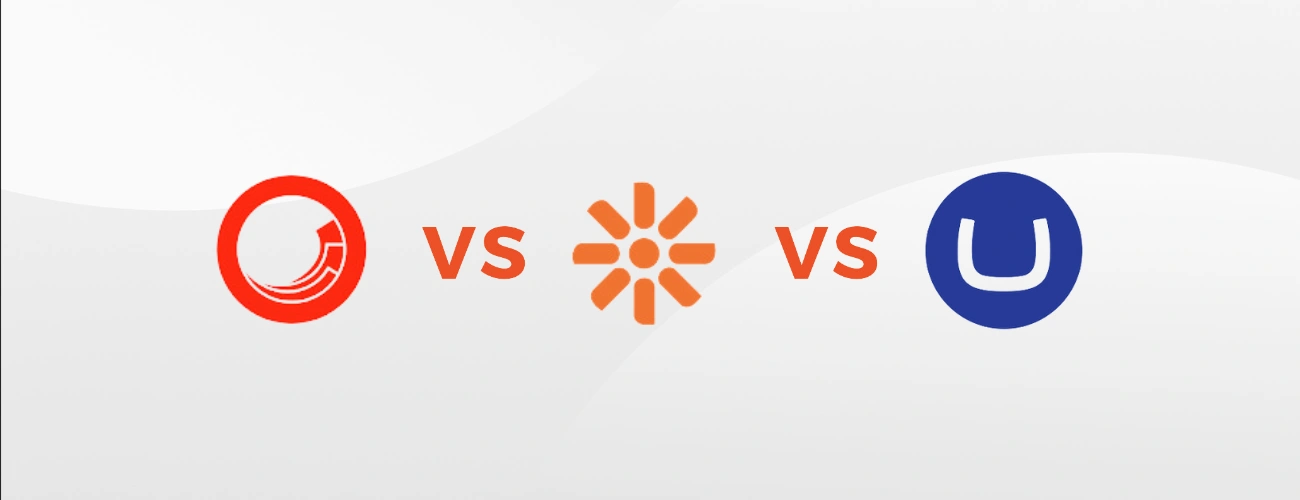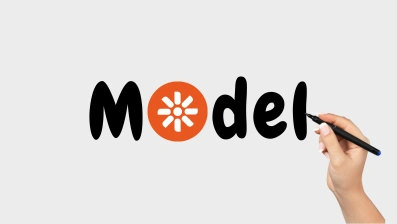Comparing Kentico vs Sitecore vs Umbraco
Confused between Kentico, Sitecore, and Umbraco? Here’s a guide on Kentico vs Sitecore vs Umbraco. Read till end and find out more.
Development partner. Read and find out.
Choosing the right content management system (CMS) is crucial for your business's digital success.
With numerous options available, it can be challenging to find the perfect fit.
In this blog, we’ll compare three popular CMS platforms: Kentico, Sitecore, and Umbraco. Each offers unique features and benefits, catering to different business needs and budgets.
Whether you’re a small business owner looking for a cost-effective solution, a developer seeking flexibility, or an enterprise in need of advanced capabilities, understanding the strengths and weaknesses of these platforms will help you make an informed decision.
Let's dive into the Kentico vs Sitecore vs Umbraco showdown and find out which CMS is right for you.
What is Kentico?
Kentico is a powerful digital experience platform (DXP) that combines content management, digital marketing, and e-commerce capabilities into a single, integrated solution. It is designed to help businesses create, manage, and optimize their digital presence across multiple channels.
Kentico's flexibility and scalability make it suitable for businesses of all sizes, from small startups to large enterprises. The platform supports multi-channel content delivery, ensuring a consistent user experience on websites, mobile apps, and other digital platforms.
With an intuitive interface and robust features, Kentico development simplifies the management of complex digital environments. It offers advanced personalization options, marketing automation, and seamless integration with third-party systems, making it a comprehensive solution for modern digital needs.
Top Features
- Content Management System (CMS): Manage and publish content effortlessly with a user-friendly WYSIWYG editor.
- Digital Marketing Tools: Utilize marketing automation, A/B testing, and lead scoring to enhance engagement.
- E-commerce Capabilities: Build and manage online stores with product management, shopping cart functionality, and payment gateways.
- Personalization: Deliver tailored experiences based on user behavior and preferences.
- Integration: Seamlessly connect with CRM, ERP, and other third-party systems using built-in connectors and APIs.
Use Cases
- Corporate Websites: Showcase company information, services, and news.
- E-commerce Platforms: Manage product catalogs, orders, and secure transactions.
- Customer Portals: Provide personalized experiences and self-service options.
- Educational Platforms: Deliver online courses and interactive learning experiences.
- Marketing Websites: Run targeted campaigns and analyze performance.
Best Suited For
- Medium to Large Enterprises: Ideal for businesses needing robust, scalable solutions.
- E-commerce Businesses: Perfect for online stores requiring advanced features and security.
- Digital Marketing Agencies: Great for agencies managing multiple client campaigns and content.
- Educational Institutions: Suitable for universities and online learning platforms.
- Healthcare Providers: Excellent for creating patient portals and managing health information online.
Kentico Pricing
Kentico offers flexible pricing models to accommodate different business needs. Pricing typically starts in the mid-range, making it accessible for small to medium-sized businesses, while still providing the advanced features needed by larger enterprises.
- License Cost: Kentico provides a perpetual licensing model with one-time fees, along with subscription options.
- Edition-Based Pricing: Different editions (such as Business, Enterprise) offer varying levels of features and scalability.
- Additional Costs: Consider potential costs for add-ons, integrations, and customizations.
- Support and Maintenance: Optional support packages are available for an additional fee.
What is Sitecore?
Sitecore is a leading digital experience platform (DXP) renowned for its powerful content management and digital marketing capabilities. It enables businesses to create, manage, and optimize personalized digital experiences across various channels, including web, mobile, and social media. Sitecore's advanced features and robust architecture make it a popular choice among large enterprises and organizations with complex digital needs.
Sitecore's core strength lies in its ability to deliver highly personalized content to users based on their behavior, preferences, and interactions. This ensures a tailored and engaging user experience, driving higher engagement and conversion rates. Additionally, Sitecore's integration capabilities allow seamless connectivity with various third-party systems, such as CRM and ERP solutions, enhancing its functionality and versatility.
The platform's scalability and flexibility make it suitable for businesses looking to grow and adapt to changing market demands. With Sitecore, organizations can efficiently manage large volumes of content, execute sophisticated marketing campaigns, and gain valuable insights through comprehensive analytics.
Top Features
- Personalization: Deliver customized experiences using real-time user data and behavior analysis.
- Content Management System (CMS): Robust tools for creating, managing, and publishing content efficiently.
- Digital Marketing Suite: Includes marketing automation, A/B testing, email marketing, and campaign management.
- Analytics: Gain insights into user behavior and campaign performance with advanced analytics tools.
- Integration: Seamlessly integrate with CRM, ERP, and other third-party applications for enhanced functionality.
Use Cases
- Corporate Websites: Manage complex websites with extensive content and user personalization.
- Global Brands: Support multi-language and multi-region sites with ease.
- Financial Services: Deliver personalized experiences and secure online transactions.
- Healthcare: Create patient portals and manage health information securely.
- Retail and E-commerce: Manage product catalogs, customer data, and personalized marketing campaigns.
Best Suited For
- Large Enterprises: Ideal for businesses with extensive digital needs and large-scale operations.
- Global Organizations: Perfect for companies with a global presence requiring multi-language support.
- Marketing Teams: Excellent for teams focused on delivering personalized marketing campaigns.
- E-commerce Businesses: Great for managing complex online stores and customer data.
- Financial Institutions: Suitable for banks and financial services needing secure and personalized user experiences.
Sitecore Pricing
Sitecore is positioned at the high end of the pricing spectrum, reflecting its enterprise-level capabilities and extensive feature set.
- Enterprise-Level Pricing: Sitecore pricing starts at a higher tier, suitable for large enterprises with significant budgets.
- Subscription-Based: Typically offered on a subscription basis, often tailored to the specific needs and scale of the business.
- Custom Pricing: Costs can vary widely based on the specific configuration, number of users, and required features.
- Additional Fees: Consider costs for additional modules, customizations, and premium support services.
What is Umbraco?
Umbraco is a flexible and user-friendly open-source content management system (CMS) that is highly regarded for its simplicity and ease of use. It allows businesses to create and manage their websites effortlessly, providing a smooth and intuitive content editing experience. Umbraco is built on the .NET framework, making it a popular choice among developers who appreciate its extensibility and seamless integration capabilities.
One of Umbraco’s standout features is its open-source nature, which means it is free to use and benefits from a large and active community. This community contributes to the continuous improvement of the platform, offering a wide range of plugins and extensions to enhance its functionality. Umbraco’s flexibility allows it to cater to various business needs, from simple websites to complex web applications.
The platform is known for its strong emphasis on user experience, both for content editors and end-users. Its clean and intuitive interface makes it easy for non-technical users to create, edit, and publish content. Additionally, Umbraco offers robust scalability, making it suitable for businesses of all sizes, from small startups to large enterprises.
Top Features
- User-Friendly Interface: Intuitive and easy-to-use content editing tools.
- Open Source: Free to use with a large community providing support and extensions.
- Scalability: Capable of handling small to large-scale websites.
- Flexibility: Highly customizable with extensive plugin and extension options.
- Integration: Seamless integration with various third-party applications and services.
Use Cases
- Corporate Websites: Create and manage professional websites with ease.
- Content-Rich Sites: Ideal for blogs, news portals, and media sites.
- Small Business Sites: Perfect for small businesses looking to establish an online presence.
- Community Sites: Build forums, community hubs, and social platforms.
- E-commerce Sites: Develop flexible and scalable online stores.
Best Suited For
- Small to Medium Businesses: Ideal for businesses seeking a cost-effective and user-friendly CMS.
- Developers: Perfect for developers looking for a flexible and customizable platform.
- Content Editors: Great for teams needing an intuitive content management system.
- Non-Profit Organizations: Suitable for non-profits looking to manage content-rich websites.
- Agencies: Excellent for digital agencies building diverse web solutions for clients.
Umbraco Pricing
Umbraco is known for its cost-effectiveness, particularly due to its open-source nature. It provides a free core CMS, with optional paid services and support.
- Open-Source CMS: The core Umbraco CMS is free to use.
- Umbraco Cloud: For a more managed experience, Umbraco Cloud starts at a low monthly fee, offering hosting, automated upgrades, and advanced support.
- Paid Add-ons: Various paid add-ons and plugins can be purchased to extend functionality.
- Support Plans: Paid support plans are available, offering professional assistance and advanced technical support.
Comparing Kentico, Sitecore, and Umbraco
When choosing a content management system (CMS) for your business, it's essential to compare key features and capabilities. Below is a detailed comparison table of Kentico vs Sitecore vs Umbraco to help you make an informed decision.
| Criteria | Kentico | Sitecore | Umbraco |
|---|---|---|---|
| Platform | All-in-one Digital Experience Platform (DXP) | Digital Experience Platform (DXP) | Open-source CMS |
| Ease of Use | User-friendly with intuitive interface | Moderate complexity, powerful features | Highly user-friendly, simple interface |
| Pricing | Mid-range to high, depending on features | High-end, enterprise-level pricing | Free (open-source), with optional paid services |
| Personalization | Advanced personalization capabilities | Industry-leading personalization features | Basic personalization, extendable |
| Scalability | Highly scalable for businesses of all sizes | Extremely scalable for large enterprises | Scalable, suitable for small to large websites |
| Integration | Seamless integration with third-party systems | Extensive integration capabilities | Flexible integrations, especially with .NET |
| Support | Comprehensive support and resources | Extensive support with premium services | Community-driven support, optional paid support |
| Flexibility | Highly customizable and extendable | Highly flexible and customizable | Very flexible and customizable |
| Development | Built on .NET, easy for .NET developers | .NET based, robust development environment | Built on .NET, developer-friendly |
| Community | Strong community and professional support | Large, active user and developer community | Large, active open-source community |
| E-commerce | Robust e-commerce features | Advanced e-commerce capabilities | Basic e-commerce, extendable through plugins |
Ease of Use
Let’s start with the first factor of Kentico vs Sitecore vs Umbraco, ease of use.
Kentico offers a user-friendly interface with drag-and-drop functionality, making it easy for non-technical users to manage content.
Sitecore, while powerful, has a steeper learning curve due to its extensive features.
Umbraco is known for its simplicity and ease of use, making it an excellent choice for beginners and small businesses.
Pricing
Kentico provides mid-range to high pricing, suitable for businesses seeking robust features without breaking the bank.
Sitecore is at the high end of the pricing spectrum, reflecting its enterprise-level capabilities.
Umbraco is free to use as an open-source platform, with optional paid services for additional support and features.
Personalization
Kentico offers advanced personalization options, enabling businesses to deliver tailored experiences.
Sitecore leads in this area with industry-leading personalization features, allowing for highly customized user interactions.
Umbraco provides basic personalization, which can be extended through additional plugins and custom development.
Scalability
Kentico is highly scalable, suitable for businesses of all sizes.
Sitecore excels in scalability, making it ideal for large enterprises with complex needs.
Umbraco is also scalable, catering to both small websites and large-scale applications.
Integration
Kentico integrates seamlessly with various third-party systems, enhancing its functionality.
Sitecore offers extensive integration capabilities, supporting a wide range of applications and services.
Umbraco is flexible in integration, particularly strong with .NET-based applications.
Support
Kentico provides comprehensive support and resources, ensuring users have access to the help they need.
Sitecore offers extensive support with premium services, ideal for enterprises.
Umbraco benefits from a large, active community offering community-driven support, with optional paid support available.
Flexibility
Kentico is highly customizable and extendable, fitting various business needs.
Sitecore is also highly flexible, supporting extensive customization.
Umbraco stands out for its flexibility, especially for developers looking for a customizable platform.
Development
All three platforms—Kentico vs Sitecore vs Umbraco—are built on the .NET framework, making them familiar and accessible to .NET developers. Each offers a robust development environment, but Umbraco is particularly noted for its developer-friendly nature due to its open-source roots.
Community
Kentico has a strong community and professional support.
Sitecore boasts a large, active user and developer community.
Umbraco has a large open-source community that actively contributes to its development and offers extensive peer support.
E-commerce
Kentico includes robust e-commerce features out-of-the-box.
Sitecore provides advanced e-commerce capabilities, suitable for complex online stores.
Umbraco offers basic e-commerce functionality, which can be extended through plugins and custom solutions.
By understanding these key differences and strengths, you can choose the platform that best suits your business needs.
How To Choose The Right One For You
Choosing the right CMS—whether it's Kentico, Sitecore, or Umbraco—depends on your specific business needs, budget, and technical requirements. Here are some key factors to consider when making your decision:
1. Business Size and Complexity
- Small to Medium Businesses: If you're a small to medium-sized business looking for a cost-effective and user-friendly solution,Umbraco might be the best fit. Its open-source nature and flexible pricing make it accessible and scalable.
- Large Enterprises: For large enterprises with complex digital needs, Sitecore offers unparalleled scalability, advanced personalization, and extensive integration capabilities. Its higher cost reflects its premium features.
2. Budget
- Cost-Effective Solutions: Umbraco is free for the core CMS, with optional paid services. This makes it ideal for businesses with tighter budgets.
- Mid-Range Pricing: Kentico offers a balanced approach with mid-range pricing, providing a comprehensive set of features suitable for various business sizes.
- Premium Pricing: Sitecore is more expensive, reflecting its advanced features and enterprise-level capabilities.
3. Customization and Flexibility
- High Customization Needs: If you need a highly customizable platform, both Kentico and Umbraco offer extensive customization options. Umbraco is particularly flexible for developers due to its open-source nature.
- Enterprise-Level Customization: Sitecore provides robust customization capabilities, ideal for complex and large-scale projects requiring detailed personalization and integration.
4. Ease of Use
- User-Friendly Interface: Umbraco is known for its simplicity and ease of use, making it a great choice for teams without extensive technical expertise.
- Moderate Complexity: Kentico offers a user-friendly interface but also includes advanced features that may require a learning curve.
- Advanced Features: Sitecore is powerful but more complex, suitable for businesses with dedicated technical teams.
5. Integration Requirements
- Third-Party Integrations: Kentico and Sitecore offer extensive integration capabilities with CRM, ERP, marketing automation tools, and more. Umbraco also supports integrations, particularly with .NET applications.
6. Support and Community
- Community Support: Umbraco has a large, active open-source community providing free support, with paid options available.
- Professional Support: Kentico offers comprehensive support and resources, ensuring help is readily available. Sitecore provides extensive premium support services, ideal for enterprises.
7. Digital Marketing and E-commerce
- Advanced Marketing Tools: Sitecore excels in digital marketing capabilities, offering industry-leading personalization and marketing automation.
- Comprehensive Features: Kentico provides robust digital marketing and e-commerce tools, suitable for businesses looking for an all-in-one solution.
- Basic to Advanced Needs: Umbraco can be extended with plugins to meet various marketing and e-commerce needs, making it flexible for different requirements.
DotStark – Here To Help You
At DotStark, we specialize in delivering top-notch Kentico solutions tailored to meet your unique business needs. As a leading Kentico development company, we bring years of expertise and a deep understanding of the platform to ensure your project’s success.
Why Choose DotStark?
- Expertise and Experience: Our team of certified Kentico developers has extensive experience in creating scalable, high-performance digital solutions.
- Customized Solutions: We offer personalized Kentico solutions that align perfectly with your business goals, whether you need a corporate website, e-commerce platform, or a complex digital experience.
- End-to-End Services: From consultation and strategy to development, integration, and support, we provide comprehensive services to ensure a seamless experience.
- Client-Centric Approach: We prioritize your needs and work closely with you to deliver solutions that drive growth and enhance customer engagement.
Ready to Transform Your Digital Experience?
Partner with DotStark, the trusted Kentico development company, to elevate your digital presence. Contact us today to discuss your project and discover how we can help you achieve your goals with Kentico. Let’s build something amazing together!
Conclusion
Choosing the right CMS—Kentico, Sitecore, or Umbraco—depends on your specific business needs, budget, and technical requirements. Each platform offers unique benefits, from Kentico’s balanced features and mid-range pricing to Sitecore’s enterprise-level capabilities and Umbraco’s cost-effective, open-source nature. Evaluate your goals and choose the best fit to enhance your digital presence.
Frequently Asked Questions
Yes, Umbraco is scalable and can handle both small and large-scale websites, making it suitable for businesses of various sizes.
Evaluate your business size, budget, customization needs, ease of use, integration requirements, and digital marketing goals to choose the right CMS—Kentico, Sitecore, or Umbraco—that best fits your needs.
Kentico integrates seamlessly with various third-party applications such as CRM, ERP, and marketing automation tools, enhancing its functionality and flexibility.
Umbraco is ideal for small to medium businesses due to its open-source nature and cost-effectiveness. Kentico also suits SMEs with its balanced pricing and robust features.
Yes, Sitecore excels in digital marketing with its industry-leading personalization and marketing automation features, making it ideal for businesses with complex marketing needs.
Kentico offers a robust CMS, digital marketing tools, e-commerce capabilities, advanced personalization, and seamless integration with third-party systems.
Kentico is a comprehensive DXP with mid-range pricing, Sitecore offers advanced enterprise-level features at a higher cost, and Umbraco is an open-source, cost-effective CMS known for its simplicity and flexibility.
Umbraco offers community-driven support with optional paid support plans, providing professional assistance and advanced technical support.
Post-launch support is essential to address any issues that arise after the project is live. It includes regular updates, bug fixes, and performance optimizations, ensuring your Kentico solution remains functional and up-to-date.
Kentico is a comprehensive DXP with mid-range pricing, Sitecore offers advanced enterprise-level features at a higher cost, and Umbraco is an open-source, cost-effective CMS known for its simplicity and flexibility.











 +91 9680599916
+91 9680599916
 vanshika@dotstark.com
vanshika@dotstark.com
